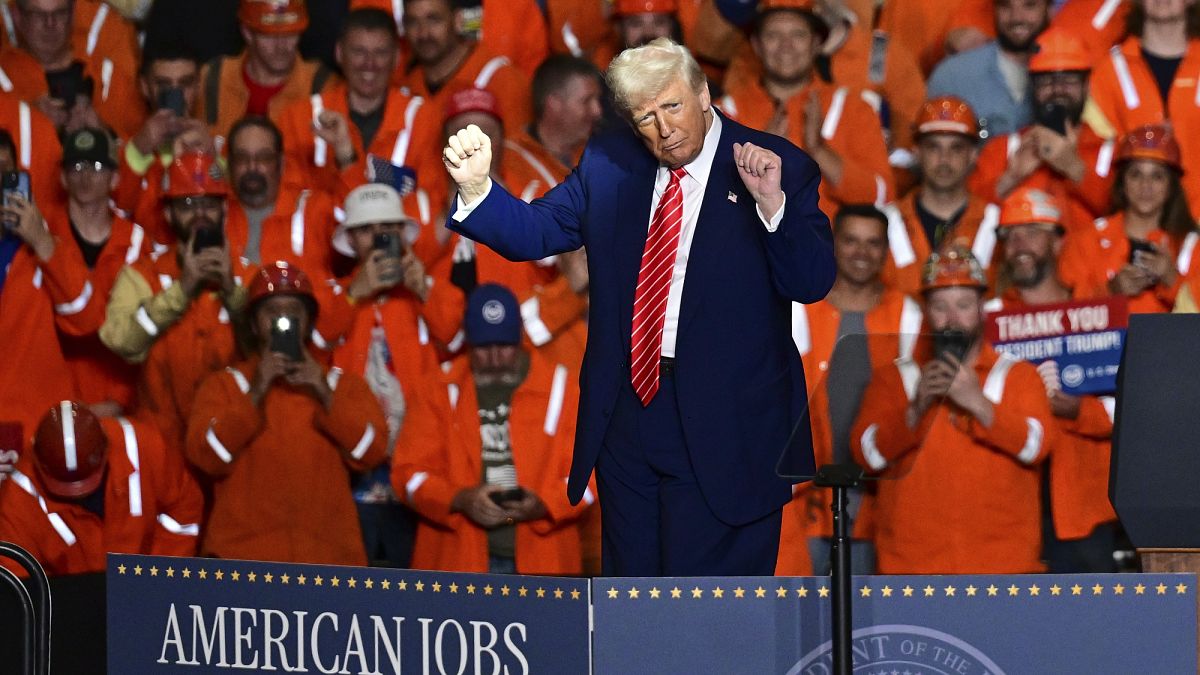

In recent times, the business and policy landscape has been bustling with notable developments. This article offers a serene overview of some key happenings in the realms of corporate affairs and international initiatives, reflecting both continuity and change in our interconnected world.
In the United States, a unique element has emerged with the anticipated Nippon Steel takeover, placing President Trump in a position of influential authority. The acquisition grants the president an unusual power of veto concerning select matters. Additionally, it provides the ability to appoint an independent director, shaping not just the current but also the potential future landscape for subsequent presidents. This move signifies a significant intertwining of political influence and corporate governance, offering a glimpse into how industries and governments might collaborate in future scenarios.
Across the seas in the United Kingdom, the energy sector is alive with discussions surrounding potential mergers and acquisitions. Recently, Shell has found itself at the center of speculation concerning an acquisition of BP. Despite widespread rumors, the company has firmly dispelled any notion of a takeover, affirming that no such plans are in the works for the immediate future. Such clear communication from Shell offers both reassurance and stability to the market, dampening a whirlwind of speculation that had led to a surge in BP’s share price. With Shell’s deliberate statement of intent, the energy sector can expect a period of steadiness amidst fluctuating narratives.
In a parallel development aimed at global cooperation, the World Bank has approved substantial funding agreements targeting development in the Middle East. Iraq, Syria, and Lebanon are set to benefit from a combined financial infusion of $1 billion. The lion’s share of this will support Iraq, where $930 million is earmarked for transforming the nation’s railway infrastructure, enhancing domestic trade, and creating job opportunities. These efforts underscore a commitment to fostering growth and rebuilding, emphasizing the World Bank’s ongoing role in nurturing sustainable development across regions in need.
At a continental level, the European Union has embarked on an ambitious venture to carve out a competitive single market for space services. Cognizant of the rapid advancements made by global players such as the United States and China, the EU’s initiative aims to harmonize the space industry landscape and ensure an even playing field for EU and non-EU operators alike. This forward-thinking plan extends its benefits to small and medium-sized enterprises, heralding a collective push for innovation and competitiveness. The exclusion of military activities from this initiative is a thoughtful step that contemplates the peaceful utilization of space, highlighting a commitment to using space exploration as a catalyst for economic prosperity.
Together, these stories weave a tapestry of interconnected progressions in governance, industry, and international cooperation. Each development reflects a measured pace of advancement, bearing the promise of positive changes on various fronts. Whether through political involvement in corporate governance, announcements stabilizing market tensions, or comprehensive funding projects to stimulate regional development, these headlines remind us of the balanced global strides we are taking towards a better tomorrow. As these developments unfold, patience and clarity in action emerge as guiding principles, continuing to earnestly shape our shared futures.
Source: {link}
